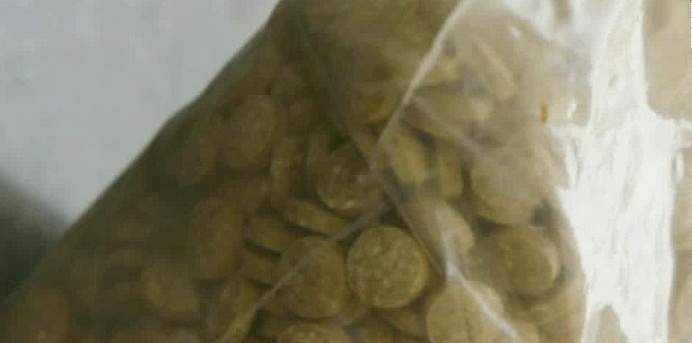Syria fighters may be fueled by amphetamines

He was a prisoner of Kurdish militants in northern Syria at the time, and CNN is unable to verify whether he was telling the truth.
But a U.S. official says it is believed that some jihadist fighters are using the drug Captagon, an amphetamine pill that can cause a surge of energy and a euphoric high.
"You can stay awake for days at a time. You don`t have to sleep," said Dr. Robert Keisling, a psychiatrist at MedStar Washington Hospital Center. "It gives you a sense of well-being and euphoria. And you think that you`re invincible and that nothing can harm you."
Analysts say the use of Captagon could help fighters last longer on the battlefield, and keep up their motivation.
"Al Qaeda in Iraq, which is ISIS` predecessor, was known for having fighters who would take amphetamines which would allow them to withstand the pain of being shot by bullets, for example," said Daveed Gartenstein-Ross of the Foundation for Defense of Democracies. "It would make them more fearsome on the battlefield, and this seems to be very similar in principle."
In addition to reportedly taking the drug themselves, militants in Syria on both sides of the fighting may also be profiting from the production and trafficking of the pills, according to the United Nations Office on Drugs and Crime. The head of the agency, Yury Fedotov, told a conference in June, "[Islamic State] and al Nusra Front are also believed to facilitate the smuggling of chemical precursors for the production of Captagon."
Pharmaceutical Captagon contained a synthetic stimulant called fenethylline. These days, narcotic manufacturers are producing counterfeit Captagon tablets, stamped with the Captagon logo, but containing amphetamine as well as other chemicals, the U.N. office says.
Matthew Levitt, a former Treasury Department official who tracked terrorist financing, said there is a good profit margin on Captagon, since it is not expensive to produce, and is in high demand, especially in Persian Gulf states.
"There has been in the past few years an increase in production in Syria and Lebanon," said Levitt, who is now at the Washington Institute for Near East Policy. "There are reports that some of this has been used to finance some of the fighters, jihadi groups, in Syria."
The use of the drug by extremists could appear to be at odds with their ideology of Islamic purity, but Gartenstein-Ross says militants could still find a battlefield justification.
"They would say, number one, that this is a tool for fighting jihad, and that therefore it`s acceptable," he said. "And secondly they would point out that the goal here is not to get high."
Captagon is a widely used stimulant throughout the Middle East, according to U.N. reports.
Just a few weeks ago, a member of Saudi Arabia`s royal family was detained at the Beirut airport over an alleged attempt to smuggle drugs out of the country on a private plane, a security source told CNN.
According to the official National News Agency in Lebanon, the prince was among five Saudis arrested and accused of trying to transport two tons of Captagon pills onto a plane bound for Saudi Arabia.
The drug was originally developed in the 1960s to treat hyperactivity, but was banned in most countries in the 1980s. According to Dr. Keisling, it not only can be addictive, but it is so hallucinogenic that it can cause users to hear voices, or see things that are not there.
In spite of those drawbacks, he said, if militant groups are resorting to the use of Captagon, "I think they have made the decision that keeping these guys awake for four or five days at a time and giving them the sense of invincibility is worth whatever harm or side effects the drugs have."















































